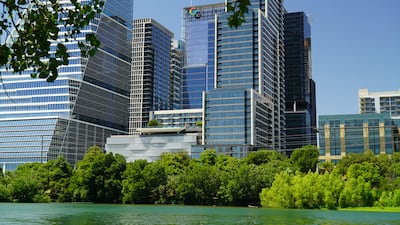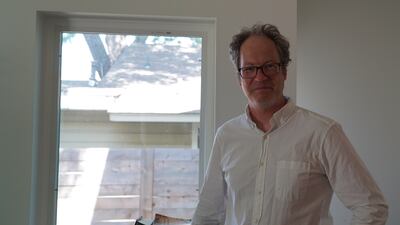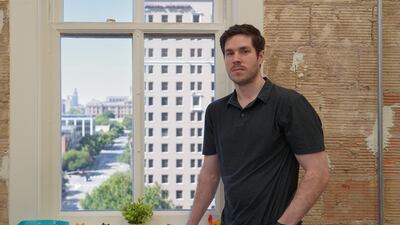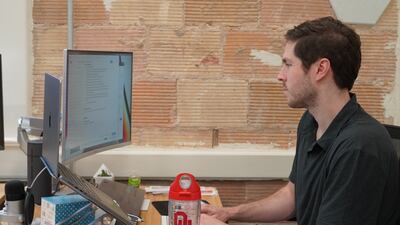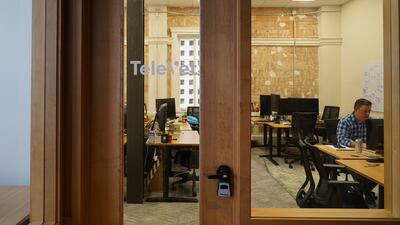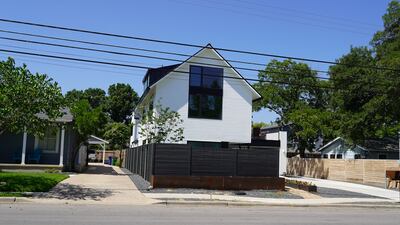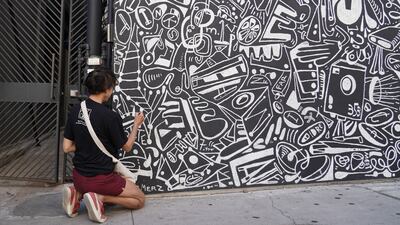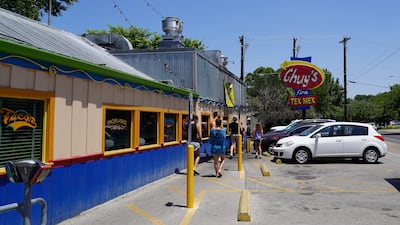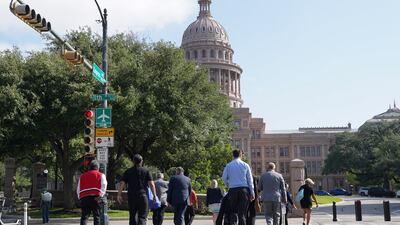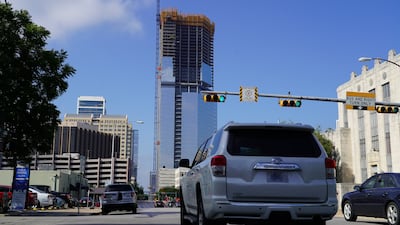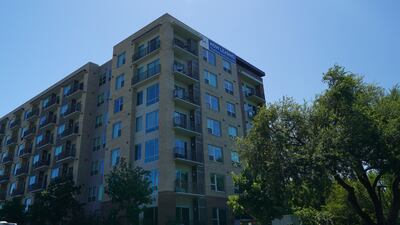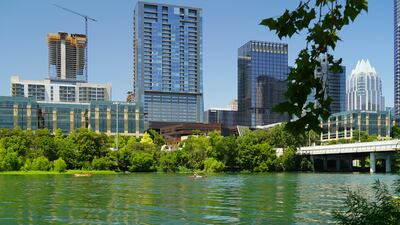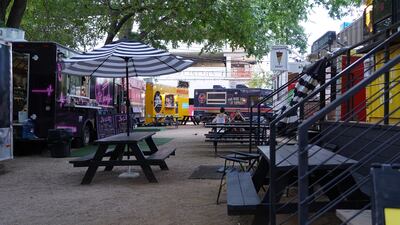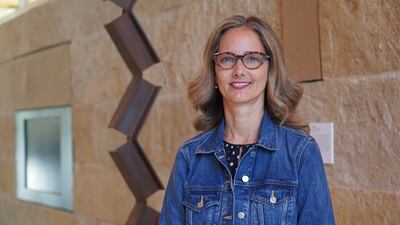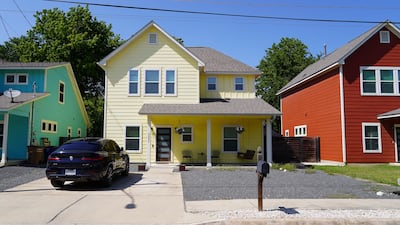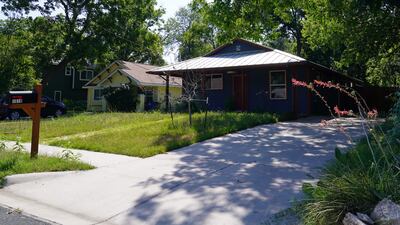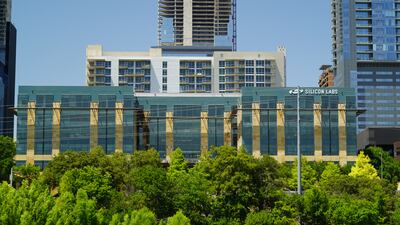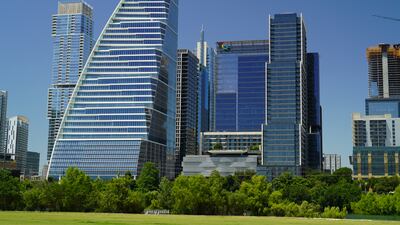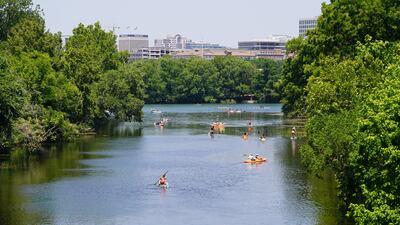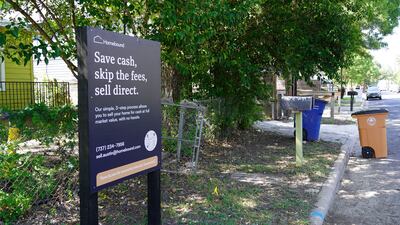Price Fallin stares out of the window of his office at the beige dome of the Texas State Capitol Building. The view is the only hint that this budding tech entrepreneur is in Austin, Texas and not New York or San Francisco.
Exposed cinder blocks and metal vents surround Mr Fallin, whose company, TeleVet, operates from a hip communal work space in downtown Austin.
Whiteboards with furiously scribbled notes, slick computer screens and casually dressed colleagues give off a very California-esque start-up vibe.
But Mr Fallin chose not to travel to Silicon Valley to pursue his dreams. Instead, the Oklahoma City native moved 600 kilometres south to Austin, one of the fastest growing cities in the US and one that is vying for the title of America’s tech capital.
“One of the reasons we came to Austin in particular was this is a very, very pet-friendly city,” said Mr Fallin, whose company helps veterinary clinics to automate their services. “It's a tech city as well, so that's a great combination for us.”
Austin is on a winding stretch of the Colorado River, which provides a playground and a natural and easy escape from the summer heat, which can exceed 38ºC.
On a blistering June day, hundreds of paddle boarders drift aimlessly down the river, floating past immaculate glass towers owned by some of the largest companies in the world, including Google and Indeed.
Access to the outdoors was a major selling point for Mr Fallin, whose company has grown from six employees in March 2020 to more than 60.
“There's a tonne of stuff to do outdoors, which is probably the thing I'm most attracted to,” Mr Fallin told The National. “There's a lot of green trails, there's the natural pools, there's places to go out and just enjoy.”
But it’s also full of skilled, tech-oriented people and perhaps, most importantly, offers access to serious money.
In 2021, venture capital funding helped fuel 387 deals worth a city record $4.9 billion, according to Pitchbook.
“Especially when you're having investors look at different start-ups here in Austin, they see it as a great spot to do a start-up versus doing something in a different city that's a little bit smaller,” he said.
Few cities in America weathered the Covid-19 pandemic better than Austin. Its population increased more than 2 per cent in 2021 and has nearly doubled since the new millennium.
But more important than population, are jobs. By July 2021, the city had already recouped 97 per cent of jobs lost during the pandemic, according to the Austin Chamber of Commerce and the city currently has more than 90,000 job openings, which is more than the local population seeking new employment.
“That's largely because of the diversity of our employer base,” said Bryce Bencivengo, director of public relations at the Austin Chamber of Commerce. “I think we do get a lot of publicity for tech and there's a tonne of tech here, but there's also government, advanced manufacturing, even the automotive industry made huge gains.”
Midway through the pandemic, Tesla, Elon Musk's electric car company, shifted its headquarters from Palo Alto, California, to Austin. It was not the only large company to seek the conservative state’s generous tax incentives.
Oracle, the world’s third-largest software company, opened up a sprawling new site on the city’s outskirts.
Mr Musk cited Austin’s relative affordability compared with San Francisco as a major factor in his decision making.
"It’s tough for people to afford houses and a lot of people have to come in from far away," he said during the company’s annual stockholders meeting in October 2021. "Here in Austin, our factory’s like five minutes from the airport, 15 minutes from downtown, and we’re going to create an ecological paradise here because we’re right on the Colorado River."
Indeed, relative affordability has long been one of Austin’s biggest selling points. According to the realtor site Redfin.com the median house price in Austin is $630,000, which is up significantly from pre-pandemic prices that hovered around $400,000. But it's markedly lower than San Francisco, which has an average house price of $1.52 million.
“In recent history, Austin was very affordable and still is affordable compared with the coasts of the United States,” Mr Bencivengo said.
But as house prices rise, some in the community worry, long-time residents may be pushed out.
“We had just an astonishingly rapid increase, the median house price in Austin went up by roughly $200,000 during the pandemic,” said Jake Wegmann, a professor in the school of architecture at the University of Texas, Austin, whose research focuses on housing, real estate and urban planning.
The city’s unofficial motto is “Keep Austin Weird”, an homage to its artistic and spunky history. The city is a liberal bastion in a deeply conservative state. Its left-leaning politics fuel an open, diverse city with a bustling music scene and expansive restaurant list.
But as the city expands, it’s wrestling with how to retain the spirit and affordability that has made it such a coveted place to live.
“We have to play both defence and offence to get out of this,” Mr Wegmann told The National. “The government putting more money into housing is like playing defence, to help people who can't thrive under the current system. But you also have to play offence because if you're not expanding the overall housing supply, then people are fighting over table scraps.”
It’s not just house prices. Rent has ballooned in recent years. According to rent.com, rents for one-bedroom homes in Austin more than doubled in the past year, more than any other city in the country.
“We've been looking at various ways to confront that,” said Kathie Tovo, an outgoing Austin City councillor. “Building on city-owned land is one, making sure that we're investing in affordable housing, both city sponsored housing, but also that of our non-profits, the city has, has had multiple successful bond programmes, where Austin residents have agreed to tax themselves to create housing for their neighbours.”
Ms Tovo acknowledges the city is in a tough position. “There are no easy solutions to fighting land costs,” she told The National.
She said Austin’s ability to provide “inclusionary” housing for those in need is hampered by Texas’s conservative nature and policies, which preclude some of the necessary strategies to prevent displacement.
While the city explores ways to stay affordable it continues to grow and attract new residents, the question now is, can it retain its “weird” spirit that has made it so popular.
